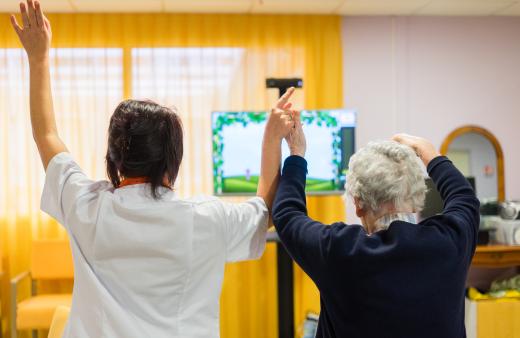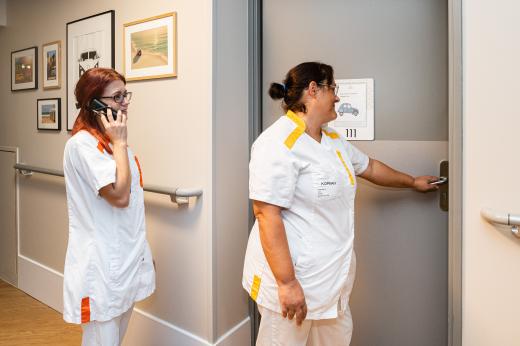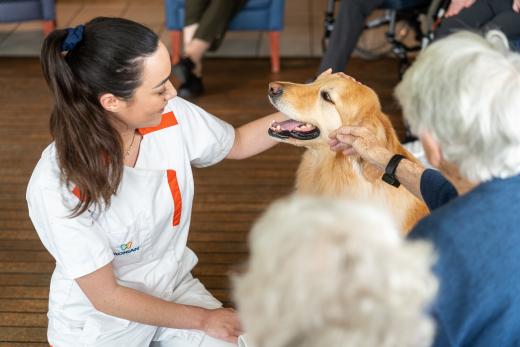Supporting people living with Alzheimer’s: our comprehensive and human approach

At Clariane, we know the extent to which Alzheimer’s disease can affect the lives of patients and their loved ones. That is why we have put in place a comprehensive approach to care, Positive Care, which goes far beyond traditional medical care. Through this approach, we have structured our interventions around five essential pillars, which demonstrate our commitment to people living with this disease and their loved ones.
Our approach to care at Clariane is what we call Positive Care. This means that we care people as a whole, not diseases, and even less an accumulation of diseases. Ultimately, what we offer is highly individualised care whenever possible. Alzheimer’s disease is a very good example. For some people, they can continue to live at home and only receive care in a medicalised nursing home during the day, in a day center for example, to give the caregiver a break or to engage in stimulating activities. For others, meanwhile, it’s better to have 24-hour protected living units in a facility with a high density of care.
Personalised care for people in their entirety
Each patient is unique, and we tailor our care accordingly. Some may continue to live at home with daytime support, while others benefit from 24-hour intensive care in our protected units. Our aim is always to respect everyone’s individual pace and needs.
Ongoing training for our caregivers
We firmly believe that the quality of care depends on the skills of our teams. We therefore invest heavily in the initial and ongoing training of our staff, with programmes certified by learned societies such as the Société Française de Gériatrie et de Gérontologie (French Society of Geriatrics and Gerontology). Our aim is to ensure that our teams are always at the forefront of best practices in supporting people with Alzheimer’s disease.

Family support
We regularly organise conferences and discussion groups to support families in their relationship with their loved ones. We also have a partnership with the Fondation Recherche Alzheimer (French Alzheimer’s Research Foundation) which holds conferences covering the latest advances in research, testimonials from carers and best practice.
Innovative therapies
We focus on non-pharmacological interventions whose effectiveness has been scientifically proven to improve our residents’ quality of life. Examples include art therapy, therapeutic screens, pet therapy and targeted physical activities, all of which we use to stimulate patients and alleviate behavioural issues.

Local public health collaboration
As a public health player, Clariane works closely with hospitals, memory centres and scientific experts to guarantee high-quality care. These partners support us in research programs and in the innovations that we can bring to patients in the field.

Alzheimer’s disease in Europe and in France in figures
- 9.7 million people currently suffer from dementia in Europe.
- Dementia is a syndrome caused by major cognitive impairment leading to loss of autonomy. Alzheimer’s disease accounts for around 70% of these cases, or 6.8 million people.
- 2 out of 3 sufferers are women.
- The number of sufferers is expected to double by 2050.
- Neurodegenerative diseases as a whole affect 1.3 million people in France.
- There are 225,000 new cases every year.
- Only 35% of sufferers are diagnosed.
- 11% of French people over the age 30 have a sick parent or partner.
- The family is 1st in line to care for the sufferers.
Sources: Alzheimer Europe, Fondation Recherche Alzheimer
At Clariane, our mission is to offer comprehensive and caring support to people living with Alzheimer’s disease, doing everything possible to preserve their dignity, independence and quality of life.
Alzheimer’s disease, let’s talk about it! Find out more about our programme

